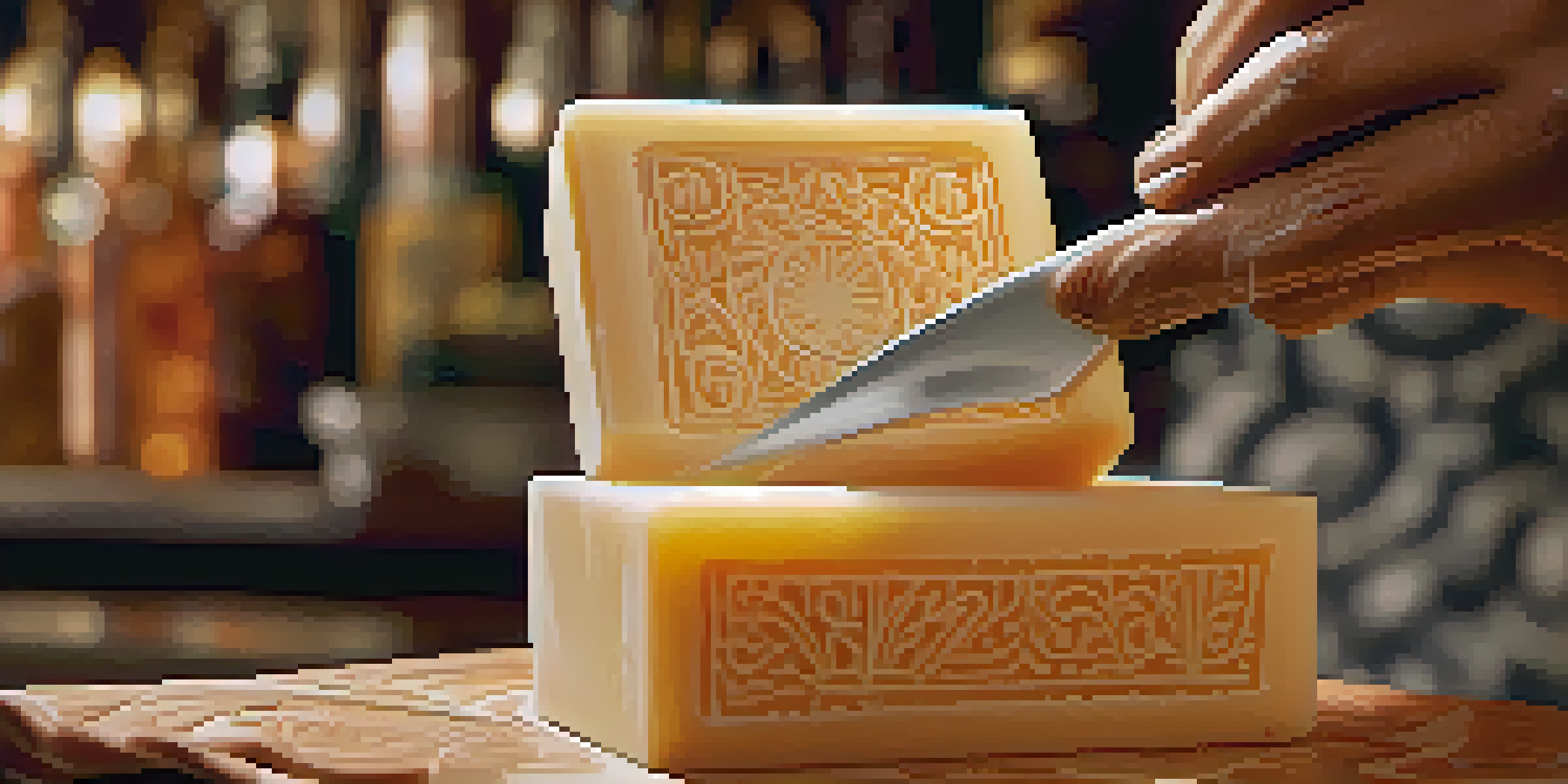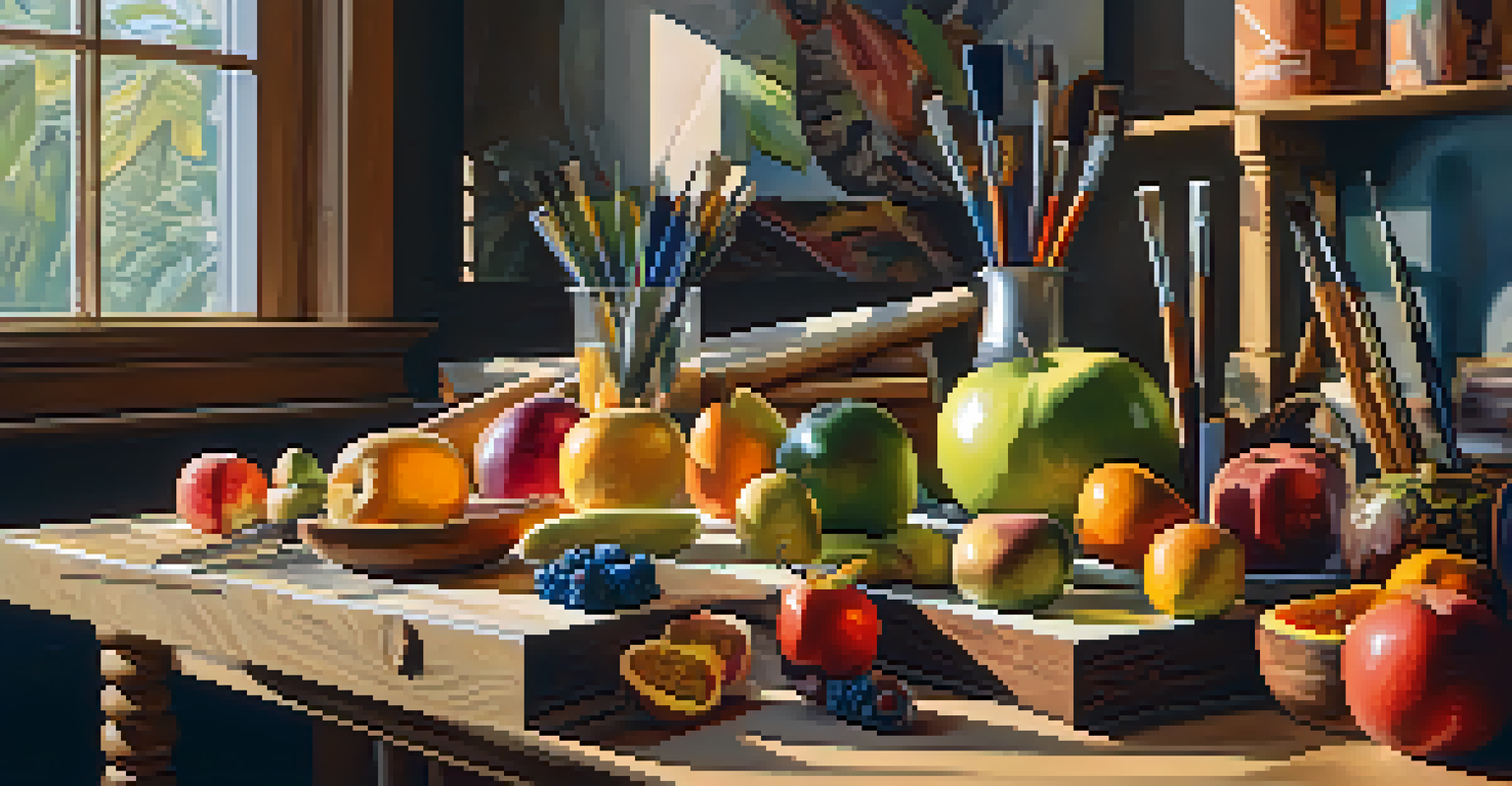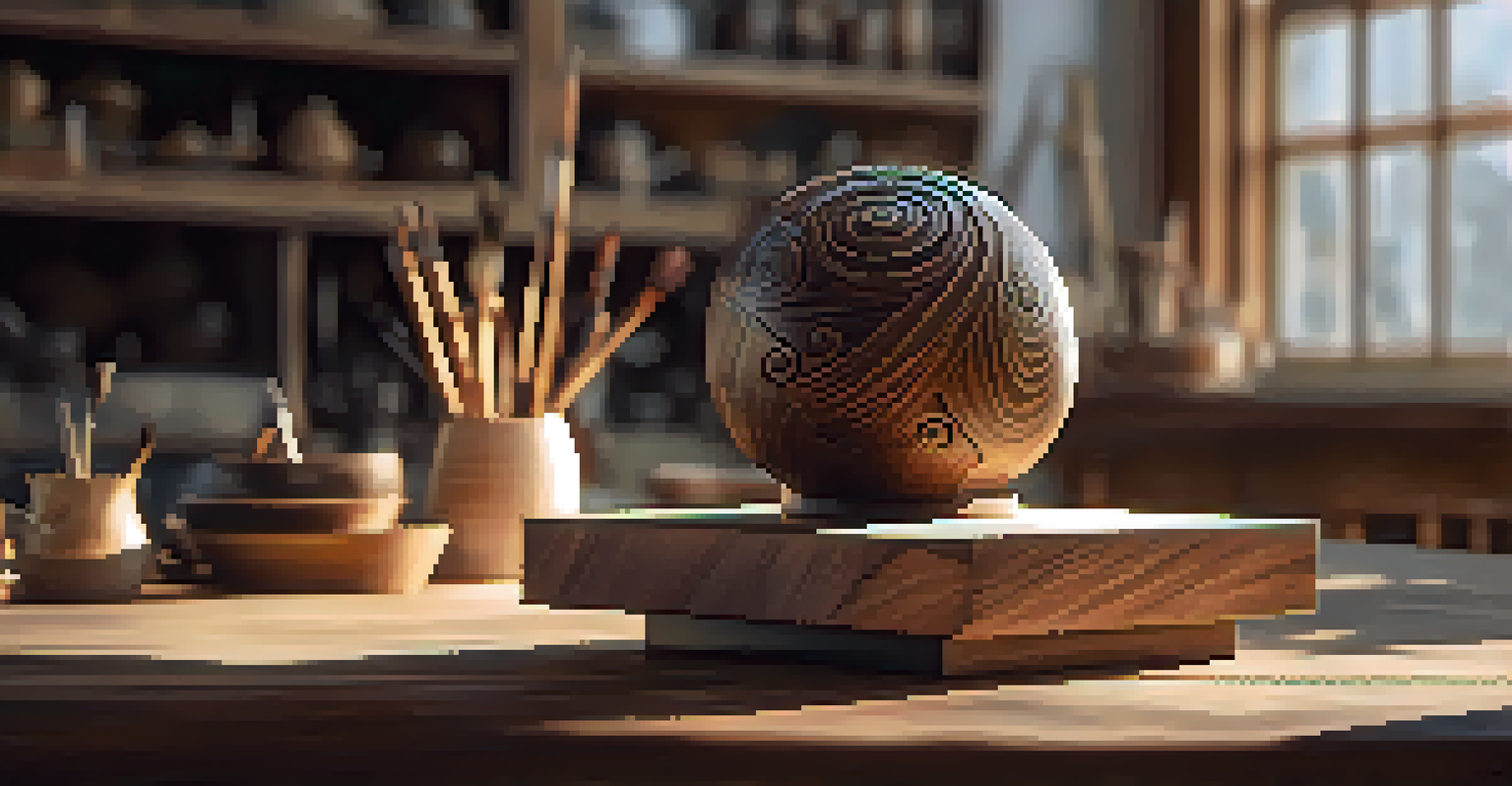Developing Critical Thinking Skills with Carving Challenges

Understanding Critical Thinking and Its Importance
Critical thinking is the ability to analyze and evaluate an issue objectively. It's crucial in problem-solving and decision-making, helping us navigate everyday challenges effectively. Embracing this skill can lead to improved creativity and innovation in various aspects of life.
The greatest weapon against stress is our ability to choose one thought over another.
For instance, consider how critical thinking plays a role when faced with a complex project at work. Instead of jumping to conclusions, a critical thinker assesses the situation, weighs options, and chooses the best course of action. This analytical approach can significantly enhance both personal and professional outcomes.
In today's fast-paced world, the ability to think critically is more important than ever. It helps us sift through information, identify biases, and make informed decisions, especially in an era where misinformation is rampant. Carving challenges can serve as a fun and practical way to develop these essential skills.
What Are Carving Challenges and How Do They Work?
Carving challenges involve creating intricate designs or sculptures from materials like wood, soap, or fruit. These activities require participants to plan, visualize, and execute their ideas, making them an excellent exercise for critical thinking. By engaging in such hands-on projects, individuals can enhance their problem-solving abilities in a tangible way.

For example, when tasked with carving a specific shape, one must consider various factors such as tool selection, material properties, and design intricacies. This process encourages deep thinking and strategic planning, as each decision can significantly impact the final result. It’s like a puzzle where each piece must fit perfectly to complete the picture.
Critical Thinking Enhances Skills
Engaging in critical thinking leads to improved problem-solving and decision-making in both personal and professional contexts.
Moreover, carving challenges can be adapted to different skill levels, making them accessible to everyone. Whether you're a beginner or an expert, these activities promote creativity while simultaneously fostering critical thinking skills. The journey from concept to creation is what makes this experience both rewarding and educational.
Benefits of Carving Challenges for Critical Thinking
Engaging in carving challenges offers multiple benefits for developing critical thinking. Firstly, they promote patience and concentration, as intricate designs require time and focus to complete. This focused attention enhances one's ability to analyze problems more effectively in everyday situations.
Thinking is the hardest work there is, which is probably the reason why so few engage in it.
Furthermore, carving encourages experimentation. When a design doesn’t go as planned, one must adapt and rethink their approach. This trial-and-error process mirrors real-life problem-solving, where flexibility and adaptability are key to finding solutions.
Additionally, these challenges foster a sense of accomplishment. Completing a carving project not only boosts confidence but also reinforces the idea that thoughtful planning and critical thinking can lead to successful outcomes. This positive reinforcement encourages individuals to apply similar skills in other areas of their lives.
How to Get Started with Carving Challenges
Starting with carving challenges doesn't require expert skills or expensive tools. You can easily begin with simple materials like soft soap or fruits, which are beginner-friendly. This accessibility allows anyone to dive in and start honing their critical thinking skills through creativity.
To kick off your carving journey, consider joining a local workshop or online community. These platforms provide guidance, share techniques, and inspire creativity among participants. Engaging with others can also help cultivate a sense of camaraderie and shared learning.
Carving Challenges Foster Creativity
Participating in carving challenges cultivates creativity while simultaneously enhancing critical thinking through hands-on problem-solving.
As you gain confidence, you can gradually progress to more complex projects. Challenge yourself to create designs that push your boundaries, whether it's a detailed sculpture or a functional item. The key is to enjoy the process while nurturing your evolving critical thinking skills.
Integrating Critical Thinking into Carving Practice
To maximize the critical thinking benefits of carving, it's essential to be intentional in your practice. Before starting a project, take time to brainstorm and outline your ideas. This preliminary step encourages thoughtful planning and helps clarify your vision.
As you carve, ask yourself questions about your choices. Why did you select a particular tool? What challenges are you facing, and how can you overcome them? This reflective practice stimulates deeper thinking and enhances your problem-solving capabilities.
After completing a project, take a moment to evaluate your process. What worked well, and what could be improved? This self-assessment fosters a growth mindset, allowing you to apply learned lessons to future carving challenges and other life situations.
Sharing Your Carving Projects for Feedback
Sharing your carving projects with others can provide valuable feedback and insights. Whether through social media, local art groups, or community events, showcasing your work can lead to constructive criticism that sharpens your critical thinking skills even further.
Feedback from peers can reveal perspectives you may not have considered. It encourages you to view your work through a different lens and think critically about your techniques and choices. This collaborative approach fosters a sense of community and shared growth.
Sharing Projects Boosts Growth
Sharing your carving projects with others invites valuable feedback, encouraging collaborative improvement and deeper critical thinking.
Moreover, discussing your projects can inspire others to pursue their own carving challenges. By sharing your journey, you contribute to a culture of creativity and critical thinking, encouraging others to explore their potential and engage in meaningful discussions.
Conclusion: The Lasting Impact of Carving on Critical Thinking
In conclusion, carving challenges are more than just a creative outlet; they are powerful tools for developing critical thinking skills. From the planning stages to the final execution, every aspect of carving demands thoughtful consideration and problem-solving.
As you embrace these challenges, you not only enhance your creativity but also cultivate a mindset that values analysis and reflection. The skills gained through carving can transcend the activity itself, positively impacting various areas of your life.

So, whether you’re a seasoned carver or new to the craft, consider diving into carving challenges as a fun way to enrich your critical thinking abilities. The journey of creativity awaits, and the skills you develop along the way will serve you well in countless situations.